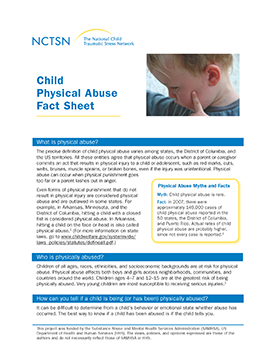
Child Physical Abuse Fact Sheet
Explains the prevalence and consequences of child physical abuse. This fact sheet offers guidance on how to recognize and help children who are being physically abused.
The following resources on Children's Advocacy Centers were developed by the NCTSN.

Explains the prevalence and consequences of child physical abuse. This fact sheet offers guidance on how to recognize and help children who are being physically abused.

Provides parents and caregivers with tools to help them support children who have been victims of sexual abuse, information on the importance of talking to children and youth about body safety, and guidance on how to respond when children disclose sexual abuse.
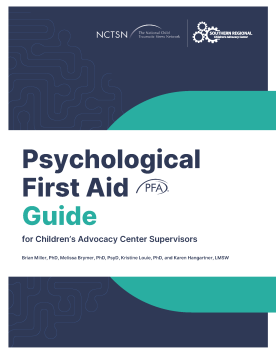
Provides information for supporting the staff in a children’s advocacy center (CAC) setting who have been exposed to critical incidents and may have concerns about their physical or psychological safety.
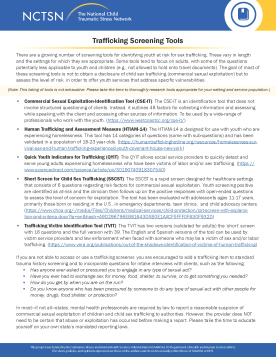
Offers a list of screening tools for identifying youth at risk for sex trafficking.
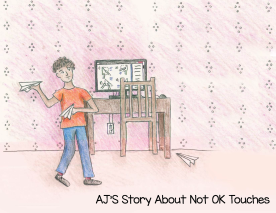
Is designed to be read by a supportive adult (parent/caregiver, therapist) to a child (ages 5-10, or as developmentally appropriate) who has engaged in a Not OK touch or problematic sexual behaviors with another child.

Offers information about the experiences of youth who have been trafficked. This fact sheet provides lists of experiences that youth may have endured prior to being trafficked, while being trafficked, and/or after being trafficked.
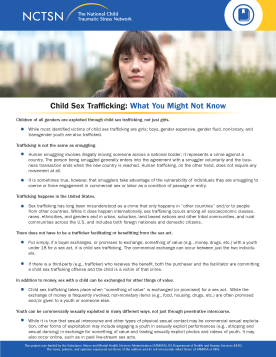
Provides a list of common misconceptions about child sex trafficking and uses facts to address those misconceptions.
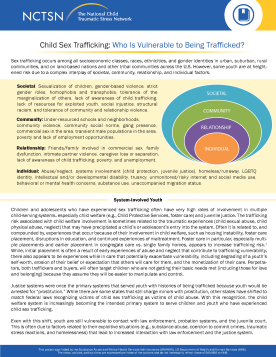
Discusses the complex interplay of societal, community, relationship, and individual factors that increase a youth's risk of being trafficked. This fact sheet offers information about youth whose experiences make them more vulnerable to being trafficked.
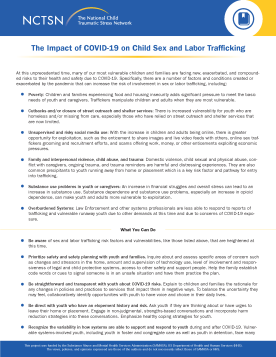
Describes how the impact and consequences of COVID-19 increase the risk of involvement in sex or labor trafficking. This fact sheet offers infromation on what you can do as a provider and how to support yourself.
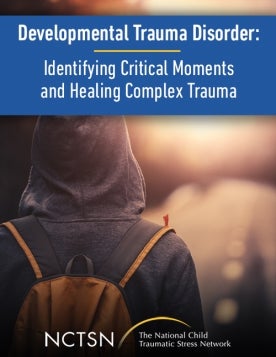
Looks back at Jordyn. Since disclosing her sexual exploitation experiences in a previous session, Jordyn continues to attend therapy sessions to address her distress symptoms; depression and PTSD.
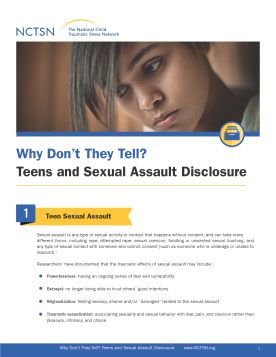
Offers information about teen sexual assault and disclosure. This fact sheet outlines why teens don't disclose sexual assault, the benefits of disclosure, and how to support teens after disclosure of a sexual assault.
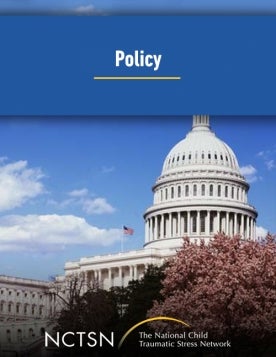
Gives examples of state and federal policy issues related to child sex trafficking. This webinar provides an overview of activities and resources related to child sex trafficking.